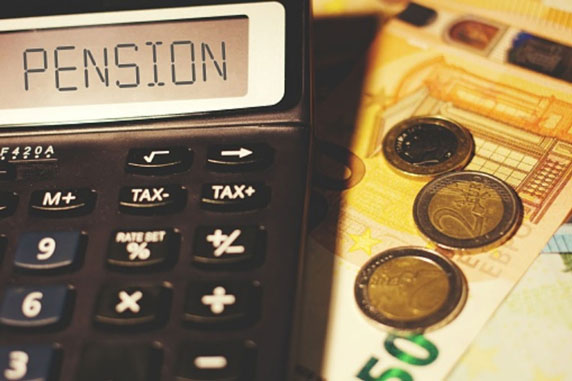Are you curious about pensions and how they work? If you’re wondering what a pension is and how it can benefit your financial future, you’ve come to the right place. A pension is an important part of any retirement plan, providing key benefits designed to protect your financial interests over time. In this blog post, we'll take an in-depth look at what pensions are, how they work, and the different types available so that you can make an informed decision regarding your retirement savings strategy. Read on to learn more!
What is a pension plan, and what are the benefits of enrolling in one?
A pension is a retirement savings plan that provides regular payments, usually, after you retire. The purpose of a pension plan is to provide income for you in the form of regular monthly payments. These payments are typically calculated based on how long you’ve worked and how much money you saved during your career. Pension plans are a great way to supplement your retirement income and provide an additional layer of security for your financial future.
The main benefit of enrolling in a pension plan is that it can provide you with a steady income when you can no longer work. The payments may be based on the amount you contributed to the pension plan, the years of service you’ve provided to a company, or other considerations. Pension plans can also provide additional financial benefits like death and disability coverage, which protect your family if something happens to you before retirement.
What are the different types of pension plans?
There are two main types of pension plans: defined benefits and contributions.
Defined benefit plans, also known as traditional pensions, are employer-sponsored retirement plans that guarantee a certain amount of monthly payments when you retire. These pension plans are funded by your employer, who will manage the investments and use them to generate returns that will be used to pay out benefits later.
Defined contribution plans, also known as 401(k)s or 403(b)s, are employer-sponsored retirement plans in which you and your employer contribute a certain amount of money each month. These contributions are invested in various stocks, bonds, and mutual funds so that they can generate returns to provide income when you retire.
No matter which type of pension plan you choose, it’s important to understand how they work and the benefits they can provide. Understanding pensions is key to making an informed decision about your retirement savings strategy.
How do you qualify for a pension, and how much money will you receive each month/year?
A few factors will determine whether you qualify for a pension plan and how much money you’ll receive each month. Generally speaking, most pensions require a certain number of years working for the company offering the plan. The number of monthly payments depends on several factors, including your age when you begin to receive payments, the number of years you worked for the company, and the amount of money put into the plan.
It’s important to consult with a financial advisor when considering your pension options, as they can provide guidance on what type of pension plan is best suited for you and answer any questions you may have.
What happens to your pension if you retire early or become disabled?

If you decide to retire early or become disabled, you may still be able to collect pension benefits. The amount and eligibility of these benefits will depend on the type of plan that you have enrolled in. Generally speaking, most defined benefit plans will provide a reduced income if you opt for early retirement or become disabled.
But, some defined contribution plans may provide 100% of the income originally promised, even if you retire or become disabled before your expected retirement age. It’s important to understand the specifics of each plan so that you can make an informed decision about when to begin collecting benefits and how much money they will provide.
Consulting with a financial advisor is a great way to learn more about your pension plan and ensure you get the most out of it.
Are there any penalties for withdrawing money from your pension before retirement?
Yes. If you decide to withdraw money from your pension before retirement, penalties may be associated. Generally, defined benefit plans will have stricter rules and higher penalties than defined contribution plans. Depending on the plan, these penalties can range from a percentage of the amount withdrawn to permanently reducing the benefits available when you retire.
It’s important to understand the regulations of your plan before withdrawing money from your pension to avoid any surprises or penalties. Consulting with a financial advisor can help you make an informed decision and ensure you take full advantage of your retirement savings.
The bottom line is that pensions can be an excellent way to plan for retirement, but it’s important to understand the specifics of your plan before making any decisions. Consulting with a financial advisor can help you make the most of your pension and ensure you’re prepared for retirement.
How does the government guarantee pensions, and who manages them?
The government guarantees pensions to protect those who invest their money in them. The government does this by requiring pension providers to meet certain standards and regulations, such as providing annual benefits statements, properly investing the funds contributed, and maintaining adequate reserves.
Professional pension fund managers manage pensions—often insurance companies or banks—to provide a steady income for retirees. These managers are responsible for investing the money paid into pensions and ensuring that any withdrawals made by retirees meet certain legal requirements.
When deciding which pension provider to go with, it’s important to research their track record and ensure that they meet all applicable standards and regulations. Consulting with a financial advisor can help you make an informed decision and find the right provider for your needs.
What risks are associated with pensions, and how can you protect yourself against them?
The risks associated with pensions depend on your plan type and the provider you choose. Generally speaking, defined benefit plans are more secure than defined contribution plans because they guarantee a specific income upon retirement. However, since professionals typically manage these funds, there is always some risk that the fund manager will not make wise investments or return the expected amount.
Defined contribution plans are typically riskier since the performance of investments can vary greatly from year to year, and there is no guarantee that you will receive the income you were expecting at retirement.
To protect yourself against these risks, it’s important to research your pension provider and make sure they meet all applicable standards and regulations. Additionally, consulting with a financial advisor can help you make an informed decision about which provider to choose and how much money to invest in your pension. Finally, regularly monitoring the performance of your investments and adjusting them as needed is essential for protecting yourself from potential losses.
FAQs
How does a pension work?
A pension is a retirement savings plan that provides a regular income when you retire. Contributions to your pension will generally be taken from your salary, and the money in your pension account will typically be invested so that it can grow over time. When you reach retirement age, you can withdraw money from your pension to provide a steady income stream.
What is the difference between a defined benefit plan and a defined contribution plan?
A defined benefit plan is a type of pension where the employer guarantees you a specific income upon retirement, regardless of how the investments in your pension perform. A defined contribution plan is one in which the employer makes regular contributions to your pension account. Still, the amount of money you receive upon retirement depends on how well the investments in your account perform.
What are the tax benefits of a pension?
When you contribute to your pension, your contributions are generally tax-deductible, meaning that you can deduct them from your taxable income. Additionally, any interest or dividends earned on investments in your pension are usually tax-deferred, meaning that you can defer paying taxes until you withdraw the money from your pension. Finally, any withdrawals from a qualified pension plan after age 59 ½ are generally not subject to income tax.
What risks should I be aware of when investing in a pension?
When investing in a pension, you should know the risks associated with your plan type and provider. Defined benefit plans are typically more secure since they guarantee a specific income upon retirement, but there is always some risk that the fund manager will not make wise investments.
What is a pension vs. 401k?
A pension and a 401k are both retirement savings plans that allow you to invest money for the future. The key difference is that professionals manage a pension, while a 401k is an account you manage yourself.
What does having a pension mean?
A pension means you will have a steady income stream when you reach retirement age. Contributions from your salary typically fund pensions, and the money in your account are typically invested so it can grow over time. When you retire, you can withdraw money from your pension to provide a steady income stream.
How many years do you get a pension?
The length of time you receive pension income depends on your specific plan, but typically pensions provide income for life. However, it’s important to note that if you pass away before retirement age, your contributions to the pension will generally not be refunded.
What happens when I die, and my pension is still active?
When you die, the remainder of your pension will generally go to your beneficiaries, who can withdraw the money from your pension. If no beneficiaries are listed on your account, any remaining funds will typically be paid to your estate.
What should I consider when choosing a pension provider?
When choosing a pension provider, it’s important to consider the fees associated with your plan and the performance of the investments in the account. Additionally, research any potential risks or limitations associated with your plan type and provider before making a decision.
Conclusion
This article helped answer some of your questions about pensions and their meaning. Knowing the basics of a pension, such as how it works and the differences between types of plans, tax benefits, and risks, can help you make an informed decision about investing in one. Be sure to research all potential providers before choosing a plan and consider all the factors carefully. With the right plan, you can enjoy a steady income stream during retirement.




